|
Dear ISCBFM Members,
Our society continues to do well. Brain 2017 in Berlin was a great success. Plans for Brain 2019 in Yokohama are going very well. Our journal is thriving. And of course, we are continuing to emphasize new inter-disciplinary research and support new scientists who will surely be the ones to will take us across the next frontier!
Respectfully,
Eng H. Lo, President
Peter Herscovitch, Past President
Hiroyuki Kinouchi , President Elect

Brain17 Recap
This year, Berlin Neuroscientists and Stroke Neurologists were happy to host the 28th International Symposium on Cerebral Blood Flow, Metabolism and Function and the 13th International Conference on Quantification of Brain Function with PET in the beginning of April. BRAIN and BRAIN-PET 2017 were complemented by 3 satellite symposia; the 7th International meeting on Cerebral Haemodynamic Regulation, iCSD 2017 – International Conference on Spreading Depolarization, and 7th Clinical Stroke Academy of the German Competence Network Stroke.
The Free University Berlin provided the venue with its Henry Ford Building, an architectural landmark on its Campus in the southwest of Berlin. More than 900 participants from 35 countries attended scientific, educational and social program, as well as a networking event for young scientists. A survey among the participants confirmed that most of them highly enjoyed the science, the discussion with friends and colleagues, the venue and the city. Under the leadership of Fahmeed Hyder, the program committee had created an exciting program, in which state-of-the art discoveries on our understanding of brain function under physiological and pathological conditions through basic, translational and clinical investigation were presented in around 100 oral and more than 500 poster presentations.
Highlights included the award ceremony in which the lifetime achievement award was presented to Richard Traystman, the competition for the Niels Lassen award which was won by Wei Cai, the presidential lecture held by W.J. Jagust, and the plenary keynote by M.R. MacLeod. We thank the members of the program committee for the selection of exciting presentations, MCI Deutschland GmbH for a flawless organization, the International Society for Cerebral Blood Flow and Metabolism and the Deutsche Forschungsgemeinschaft for support, and all participants for making this conference a great success.
Ulrich Dirnagl and Matthias Endres
Update from the Secretary
Dear ISCBFM members,
As you all already know by now, our former secretary, Pr. Joe LaManna, has stepped down from his position and now I will serve as secretary for the next 2 years. As I started deeply dealing with the current business of the Society, I appreciated how his effectiveness, dedication, and hard work should set an example that will be hard to follow. Therefore, I would sincerely like to express my gratitude to Joe for the wonderful job he did in the last 6 years, including recommending the name “BrainBits” for the present newsletter of the Society.
This is the first issue of BrainBits after the BRAIN/BRAINPET17 meeting in Berlin, where new officers and board members assumed their positions. Since then, the Executive Committee has been working on filling out the membership of the various committees. In the past, some members may have had the feeling that inaction rather than over activity has been one issue with respect to committees' function. Over the past several years, the roles of our committees have evolved to gain in efficiency and responsibilities from the structure that had existed until recently. Striking examples are both the Education Committee and the Early Career Investigators (ECI) Committee. Both played leading roles in recent initiatives resulting in the advancement of our Society, thereby ensuring further scientific expansion and recognition of ISCBFM in the years to come. Both committees are now deeply involved in the Brain Programming Committee, assuring that our Society dedicates a constant effort to promote the rise of our ECI.
In essence, the Education Committee, chaired by Maria Grazia de Simoni, now has an additional mandate to evaluate applications from active Society members for partial sponsorship of small conferences, courses or satellite meetings that are related to the overall scientific goals of the Society and are of potential benefit to its members (http://iscbfm.org/Home/Small-Meeting-Sponsorship-Request.aspx). Meanwhile, the ECI committee chaired by Sam Knauss worked on redefining the criteria for membership to take in account the stage in training and the many and lengthy paths for becoming a scientist in our field. This gave rise to the new categories of Student Early Career Investigator, Full Early Career Investigator, and Scholar Early Career Investigator are now integrated in our by-laws. The dues rate for ECIs were also reduced.
Indeed, our membership is key to our success to maintain the heart of the Society beating strongly and vigorously. Therefore our Membership & Marketing Committee chaired by Bill Pearce has been exploring new avenues to secure our membership and to attract new investigators. Some of the proposed initiatives have already been implemented and others are under consideration and should emerge promptly. One of them was the striking decrease in dues rate from $148 to $50 per year, with a 20% discount when subscribing for 2 years at a time, while membership benefits remain unchanged including the advantage of a reduced publication page charge and open access processing charge (https://us.sagepub.com/en-us/nam/journal-of-cerebral-blood-flow-metabolism/journal202485#journal).
Therefore I express my warmest gratitude to all members of the Society who have served on these strategic committees to make the Society as strong and vigorous as it is now. As the society is still facing and will face several new challenges in the next years, each and every committee will be crucial to the future of the Society and the ISCBFM wishes to thank every incoming Director and volunteer who has agreed to serve the Society by contributing to committee activity. The composition of all committees should be announced soon on the Society website: (http://iscbfm.org/About-Us/Committees.aspx).
Finally, make sure to keep posted on the program of the next Brain meeting that will take place in Yokohama, Japan (http://brain2019.jp/info/index.html) and if you have any suggestions or concerns about the Society, please feel free to directly contact me.
Membership News
William Pearce ([email protected]), Membership Committee Chair
The handoff of responsibility for professional management of the ISCBFM from Kenes to FASEB has brought many positive changes to the way our society operates. Given the new opportunities for database management offered by FASEB, our Membership Committee has undertaken a broad review and restructuring of the systems we use to recruit, track, and support our members.
In the recent past, the ISCBFM included two categories of membership: Junior Members and Ordinary Members. Junior Members were at an early career stage, typically within 5 years of completing their training. Ordinary Members included individuals who had secured a regular full-time professional appointment. In light of the broad range of career resources requested by students, postdoctoral fellows, and early career investigators, the ISCBFM established a Young Investigator’s Committee several years ago. The success of this approach motivated the board to eliminate any reference to age and rename this committee to the Early Career Investigators’ Committee, and simultaneously define several new categories of membership. These include: 1) Student ECI, who have yet to obtain their final professional degree. 2) Scholar ECI, who have their professional degree but are completing postdoctoral or fellowship training; and 3) Full ECI, who have completed their training and are in the first 5 years of their first professional appointment. Finally, we include Full Members, who have completed all their training and have held a professional appointment for five or more years. As in the past, we also have several special categories of membership, including Emeritus, Honorary, and Sustaining members. These new categories of membership will be implemented for all members beginning in 2018.
About the same time that the professional management of the ISCBFM transferred to FASEB, we also shifted the responsibility for publishing the society’s journal, the well-respected Journal of Cerebral Blood Flow and Metabolism, from Nature Publishing Group to Sage Publishing. Among the many advantages of this change was a dramatic decrease in the cost of digital subscriptions to the JCBFM. In turn, our society has passed along these savings to its members in the form of greatly reduced membership dues. Starting in 2018 for 1 and 2-year intervals, our annual dues will be $50/$80 for Full Members, $40/$64 for Faculty ECI Members, and $20/$32 for either Scholar or Student Members. Importantly, all categories of membership will include a digital subscription to the JCBFM. Please note that all members also receive discounted rates for registration for our biannual meetings. Our hope is that decreased dues and increased benefits will enable our Society to attract a diverse membership that includes many young and early career investigators.
Individuals interested in joining the ISCBFM should visit our membership page at http://iscbfm.org/Membership/About-Membership.aspx. On that page is a redesigned and simplified application form designed to streamline the application process. Once a month, we collate the information on completed applications to prepare a paragraph that summarizes key details about each applicant. All applicants are given an opportunity to approve their summary paragraph, and once it is approved this is forwarded on to the Executive Committee to keep them informed about the makeup and interests of our membership. All new members also receive an official welcome from the Chair of the Membership Committee, along with announcements of upcoming meetings and activities organized by our Society.
In response to membership requests to facilitate career development and collaboration, the ISCBFM is now creating Scientific Interest Groups (SIGs). These groups are designed to bring together members with common interests to facilitate communication, planning and submission of symposium proposals, and organization of both formal satellite meetings as well as informal group meetings within our biannual meetings. If you are interested is establishing an SIG within our Society, please contact Dr. Cenk Ayata ([email protected]), who is organizing this effort. If you are interested in joining the Early Career Investigators’ group, please contact Dr. Sam Knauss ([email protected]), who is leading this group. Please note that the ECI group is working to organize a “Mentorship Program,” which matches ECI investigators with senior investigators to facilitate career development. The ECI group also organized its own social event at the last biannual meeting of our society (Brain ’17). Other groups are also being organized within our Society to facilitate networking and communication among our members. If you have an idea or a theme you’d like to cultivate within our Society, here’s your chance; please take advantage of this opportunity.
In addition to the new programs and changes mentioned above, the ISCBFM is working to develop more resources to benefit our membership, including expanded educational symposia at the beginning of each of our biannual meetings, support for satellite meetings, and increased numbers of travel bursaries to enable Student and Scholar members to attend our biannual meetings. The board appreciates the importance of providing many forms of support for its membership and is dedicated to responding to the changing needs of its membership. We plan to communicate details about new benefits and programs in future newsletters, so stay tuned! Of course, if you have ideas about new programs or services that could benefit the membership, please don’t hesitate to let us know.
Early Career Investigator Committee Update
Dear ISCBFM members,Two of the ISCBFM’s main goals are to help early career investigators develop and to promote interactions between senior and junior researchers. The ISCBFM’s Mentorship program was established to help achieve these goals. It aims to foster the career development of junior researchers from diverse backgrounds in order to allow them to develop successful research careers in ISCBFM’s areas of interest. It will do this by enhance networking, and providing mentorship.
As this was the first attempt to establish a mentorship program, the Early Career Investigator Committee (ECIC) decided to include 10 mentor /mentee pairs in the first cohort. Overwhelmed by the positive results from a survey for Brain 2017 participants, the ECIC decided unanimously to pair 32 of the 80 applicants that were received after early registration. This was done using an algorithm designed to match mentors with mentees on the basis of research interests. The Early Career Networking Event at the Brain 2017 conference in Berlin served as kick-off event and a first mentoring opportunity. The event was sold out and the number of tickets had to been increased from 150 to 200 due to high demand. After the conference, the mentorship program continues to raise interest with 19 further applications. A first evaluation of the program will be conducted in April 2018.
From our view, the launch of the ISCBFM mentorship program has been a great success. We did not anticipate the enthusiasm, especially from more senior investigators, to invest time and resources. The ECIC therefore proposes to continue the program with biannual calls for applications in the run-up to the Brain conference.
We would like to thank all participants and especially our mentors for making the start of the ISCBFM mentorship program a success. The mentorship program is a great opportunity especially for early career investigators to expand their professional network and get advice from experienced researchers in their field. Please do not hesitate to contact the ECI Committee with any questions concerning the program or if you are interested in joining.
Samuel Knauss,
Chair of the ECIC
Excerpt from “2018: The Beginning of a New Era”
by Jun Chen, Rick Dijkhuizen, Peter Herscovitch, Guohua Xi and Patrick Lyden
The Journal of Cerebral Blood Flow and Metabolism (JCBFM) has been successfully managed since 2009 by the co-Editors-in-Chief Martin Lauritzen (2009–present), Ulrich Dirnagl (2009–2016) and Mhairi Macrae (2016–present), and their editorial support staff. Their profound commitment and loyalty to the Journal, organizational skills, and original initiatives have effectively guided the Journal through the shifting landscape of scientific publishing. This fruitful era is now coming to a close, and a new editorial team will steer the ship from 1 January 2018 onwards, with transitions starting 1 July 2017.Journal of Cerebral Blood Flow and Metabolism
The next editorial team will be directed by Jun Chen, the new Editor-in-Chief. He was selected after a rigorous search process, and the decision was announced at the BRAIN 2017 meeting in Berlin, organized by the International Society for Cerebral Blood Flow and Metabolism (ISCBFM). Dr. Chen is an Endowed Professor of Neurology and Pharmacology at the University of Pittsburgh School of Medicine (USA) and brings with him a wealth of experience in the fields of experimental, translational, and clinical neuroscience research. He has already served many roles at the ISCBFM and has been involved in editorial activities for numerous scientific journals. In his new role as Editor-in-Chief of the Journal, he will be assisted by a team of associate editors Rick Dijkhuizen, PhD (University Medical Center Utrecht, The Netherlands), Peter Herscovitch, MD (National Institutes of Health, USA), Guohua Xi, MD (University of Michigan, USA), and Patrick Lyden, MD (Cedars-Sinai Medical Center, USA). In addition, Dr. Richard J. Traystman and Dr. Ulrich Dirnagl will serve as Consulting Editors. Finally, a fifth associate editor is currently being recruited.
The new editorial team is eager to make a profound difference to the Journal and is looking forward to guiding authors through the field of modern scientific publishing in collaboration with SAGE Publications. An important goal of the editorial team is to attract papers of the highest caliber from emerging research areas, while still maintaining the Journal’s reputation and long-standing tradition in publishing high-quality articles on experimental, theoretical, and clinical aspects of brain circulation, metabolism, and imaging in health and disease. The editorial team intends to embrace novel publishing tools and strategies to modernize the Journal, and is hopeful that this will increase the Journal’s appeal and widen its circulation. To ensure the highest level of scientific integrity and publication ethics, the reviews of submitted papers will involve not only experts in the specific area of the study but also statisticians and guideline reviewers, in line with evolving publishing standards.
The editorial team is optimistic about the new era of scientific publishing. Several exciting new developments include:
- A new workflow for the manuscript handling system in which peer reviews are handled by associate editors who will make preliminary, mutually agreed upon decisions.
- Promotion of cutting-edge research areas and encouragement of submissions from these fields.
- Outreach to other scientific communities involved in neurovascular research.
- Editorial selection of one featured article per journal issue for open access without fee.
- A new look and new platforms to promote the Journal and to engage early career investigators.
- Integration with Publons to enhance recognition of the important contribution of reviewers.
- Recruitment of new editorial board members. Invitations for membership renewal will be sent each year, along with quantitative data on the member’s review performance for the Journal.
The new editorial team is immensely grateful for the dedication, leadership, and achievements of Ulrich Dirnagl, Martin Lauritzen, and Mhairi Macrae. We are highly motivated to continue to promote and advance the Journal of Cerebral Blood Flow and Metabolism as a major platform for high-quality papers on basic, preclinical and clinical neurovascular research.
New Board of Directors for ISCBFM
Please welcome and congratulate the incoming Board of Directors.
2017-2021 Board of Directors
|
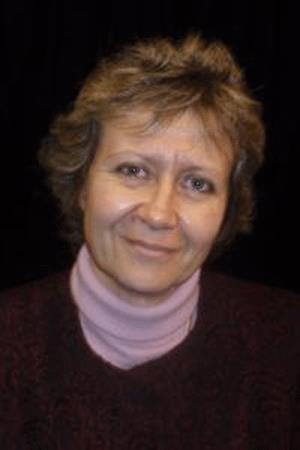 Doris J. Doudet, Canada Doris J. Doudet, Canada
|
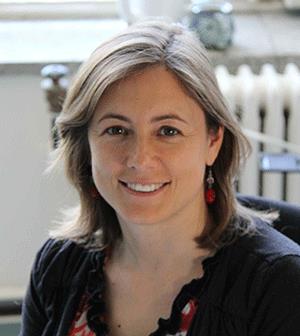 Helene Girouard, Canada Helene Girouard, Canada |
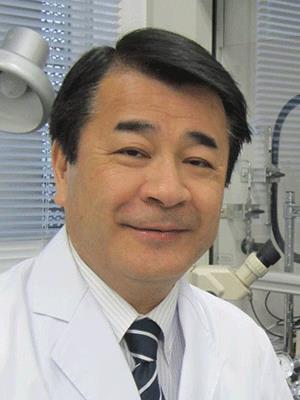 Hideaki Hara, Japan Hideaki Hara, Japan
|
 Christoph Harms, Germany Christoph Harms, Germany |
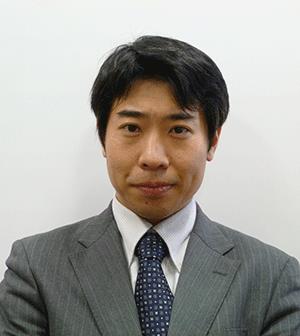 Kazuto Masamoto, Japan Kazuto Masamoto, Japan |
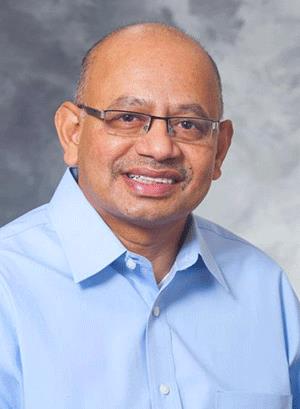 Raghu Vemuganti, USA Raghu Vemuganti, USA |
| |
2017-2019 Board of Directors
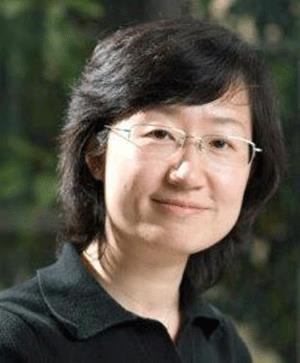
Yongting Wang, China
|
|
Comments and Feedback
We want to hear from you!
We want to make sure this membership resource is providing you with the content you want. Please send us your comments and feedback regarding the Brain Bits newsletter to
|